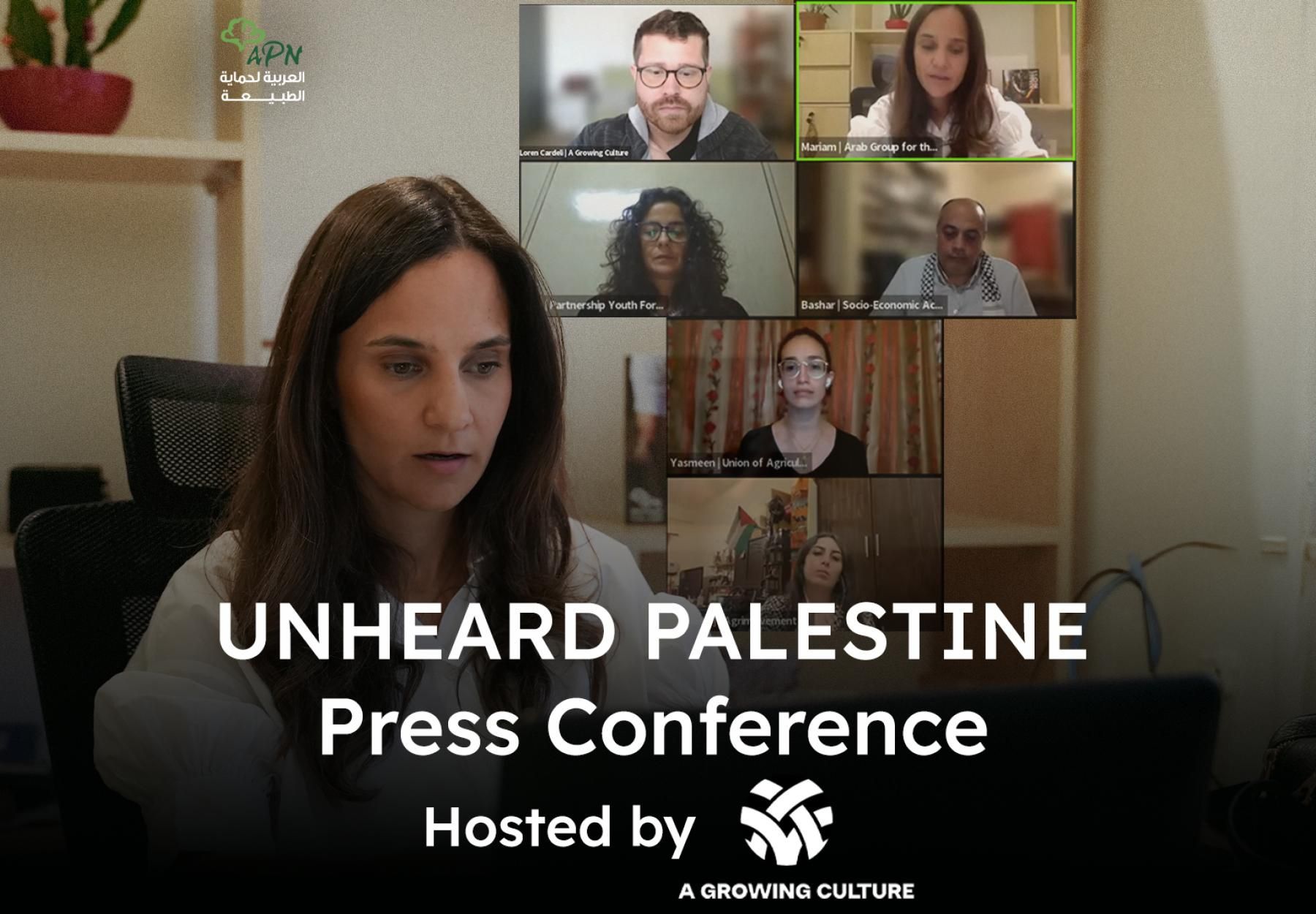
APN | Amman
6 November 2023
In the press conference titled "Unheard Palestine", organized by A Growing Culture and attended by over 90 journalists and writers, APN General Manager, Mariam Al Jaajaa, provided forthright responses regarding the unfolding genocide in Gaza.
Addressing the food crisis in Gaza, Al Jaajaa emphasized that the ongoing genocide manifests through tactics of starvation and dehydration. The Israeli occupation imposed a blockade on essential resources such as food, water, and fuel, actively preventing the entry of humanitarian aid. This dire situation has resulted in people resorting to consuming moldy bread and expired food. She also discussed the alarming degradation of water sources due to the occupation’s targeted attacks and bombings on water infrastructure and solar panels. This situation raises significant concerns regarding dehydration and the heightened risk of waterborne diseases, particularly among children who are using dirty water for formula, in the cases where formula is even available. Furthermore, Al Jaajaa underscored the intensity of the bombing, noting that the occupation has dropped over 25,000 tons of explosives on Gaza since October 7th, equivalent to two nuclear bombs, and the use of internally banned weapons, such as cluster bombs and white phosphorus, has added to the severity of the situation.
Al Jaajaa proceeded to discuss the prevailing narratives that have been strategically crafted to manufacture consent for this genocide, overcoming ethical impediments to mass extermination. Palestinians are compared with beasts, animals, and cockroaches, a dehumanizing characterization that perpetuates the atrocity. This tactic is by no means unprecedented in acts of genocide, having been employed in historical tragedies like the Holocaust and the Bosnian genocide. Al Jaajaa further highlighted that the unfolding events did not start on October 7th but trace back over a century to the inception of the Zionist agenda to colonize Palestine. She provided insights into the expansion of the colonial project in the West Bank, now accommodating 750,000 settlers across 145 major settlements and additional smaller ones. Among these illegal settlers, tens of thousands are militarized and systematically target and attack farms, resulting in the killing of farmers. Numerous Bedouin communities have faced forced displacement. Additionally, permits that allow Palestinians to cross the green line have stopped, allowing settlers to abduct and humiliate Palestinian workers, reminiscent of the war crimes committed at Abu Ghraib in Iraq. She also underscored that there are more than 5000 Palestinian hostages, including 200 children, confined in Israeli prisons, with 1300 held without formal charges.
Al Jaajaa concluded by urging the attending journalists not to perpetuate false narratives but instead to serve as independent voices that debunk unverified news and propaganda. She implored them to shed light on the stories of the Palestinians who have been lost, emphasizing the importance of addressing the root causes of the ongoing struggle—namely, 100 years of apartheid and colonialism. Al Jaajaa encouraged the journalists to follow the work of those journalists and activists who are risking their lives to report the truth. Finally, she cautioned against the double standards of the West, asserting that history will document the hypocrisy and silence of those complicit in the genocide of Palestinians.